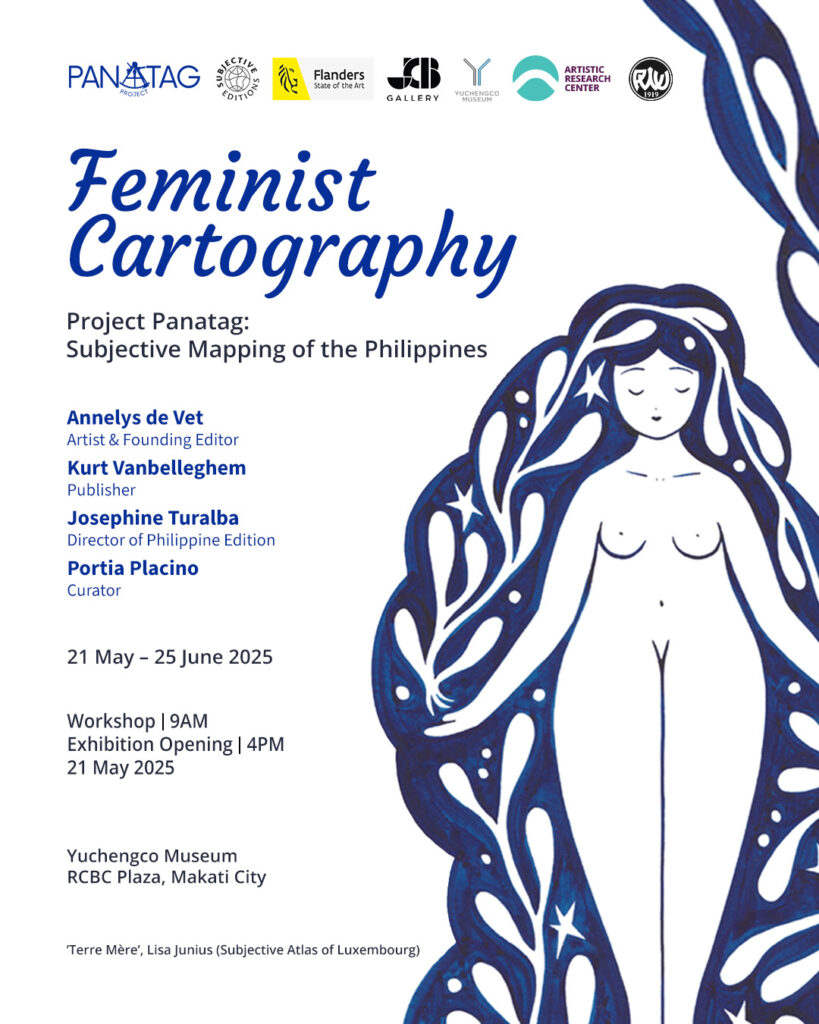How would you map out your city based on personal experience? How do you situate yourself in the world? Questions such as these are at the heart of Belgian-based Dutch artist Annelys de Vet’s practice of subjective mapping: a means of reconstructing cartographic depictions from a more diverse and critical perspective.
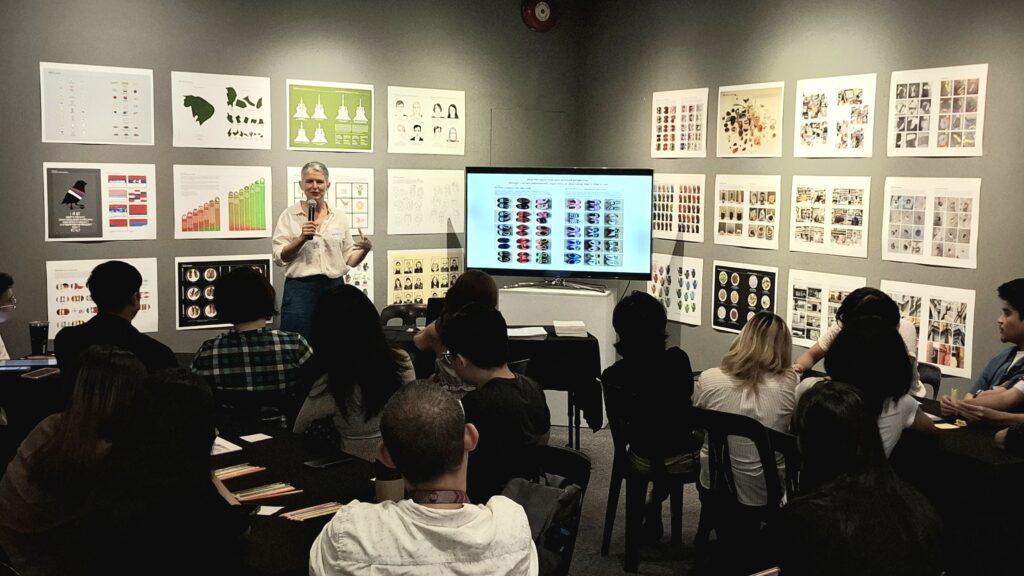
Last May 21, 2025, Yuchengco Museum hosted the Philippines’ first iteration of Project Panatag: Subjective Atlas of the Philippines, a collaborative project organized by the Philippine Women’s University (PWU) and De Vet’s publication initiative Subjective Editions. Through various workshops around the country, the project aims to create bottom-up cartographies of the Philippines mapped by Filipinos themselves, resulting in a visual anthology of their lived experience in the country. This collection is dubbed a Subjective Atlas, indicating not only a sense of place, wherein one can position themselves in a particular geographic location, but also a sense of time and personal identity. Each contribution in any one Atlas is a visual representation of a participant’s life in their city, region, or country, consisting of various maps, routes, infographics, portraits, photo collages, and many more. By the end of the project’s run, select contributions from participants around the country will be published in the Subjective Atlas of the Philippines, joining previous publications on other locations such as Amsterdam, Brussels, Pakistan, and Palestine. Works from these Atlases—as well as all works by participants during the May 21 workshops—are currently on view as part of the Feminist Cartography exhibit at Yuchengco Museum.
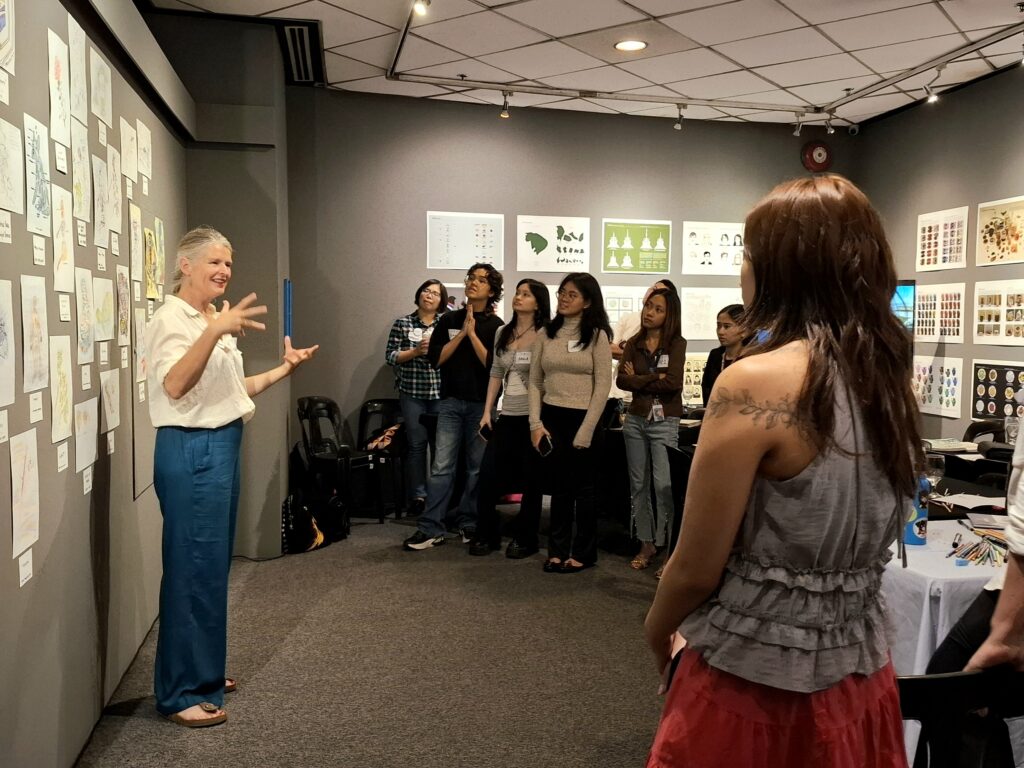
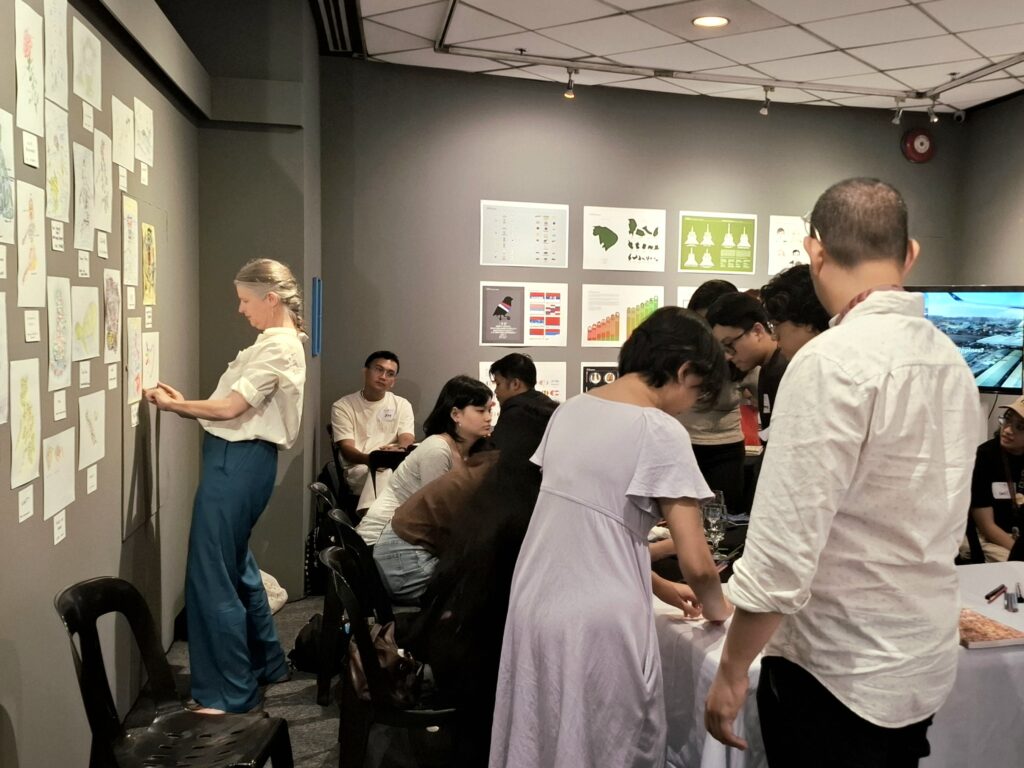
Housed in the fourth-floor alcove of the museum, a brief presentation by De Vet and two workshop sessions precluded Feminist Cartography’s official opening. Up to 30 participants from PWU, ranging from undergraduate students to faculty, spent the day visualizing the Philippines through their day-to-day experience while sharing stories and interpretations of their created works. What began as a simple gallery room quickly became a space for personal reflection and visual discourse. The workshop’s morning session tasked participants with mapping the Philippines not according to any national borders, but what it means for them to be a Filipino living in the Philippines. The activity challenged the notion of cartographic practices as neutral and objective, highlighting how mapping can be turned into a critical and inclusive exercise by considering identity alongside time and place.
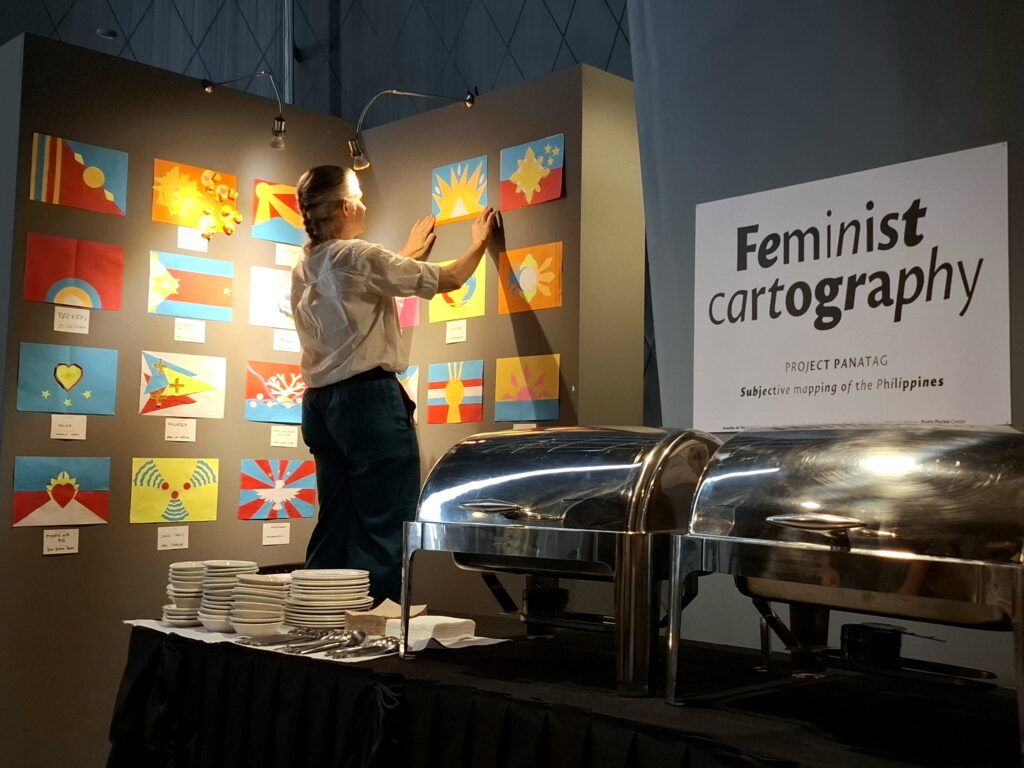
After lunch, participants reconstructed the Philippine flag with an array of new colors and symbols and, in the process, determined how they want to be represented as Filipinos. The usual sun and stars were joined by other images such as birds, pearls, hearts, ocean waves, and sampaguita flowers, revealing the different aspects of the participants’ Filipino identity that they wish to emphasize.
Between cutting up colored paper and passing around pencils and glue sticks with neighboring tables, some participants noted how the day’s activities reminded them of being in elementary school. And by the end of the second session, the fourth-floor alcove indeed looked like the whirlwind aftermath of an arts and crafts class. This childlike nature of the activities goes hand-in-hand with the mission of subjective mapping: to look at our community and environment as we experience it in the present, uncolored by preconceived notions of geographic borders or cultural divides—to see the world with a fresh set of eyes, instead of simply accepting the dominant narrative.
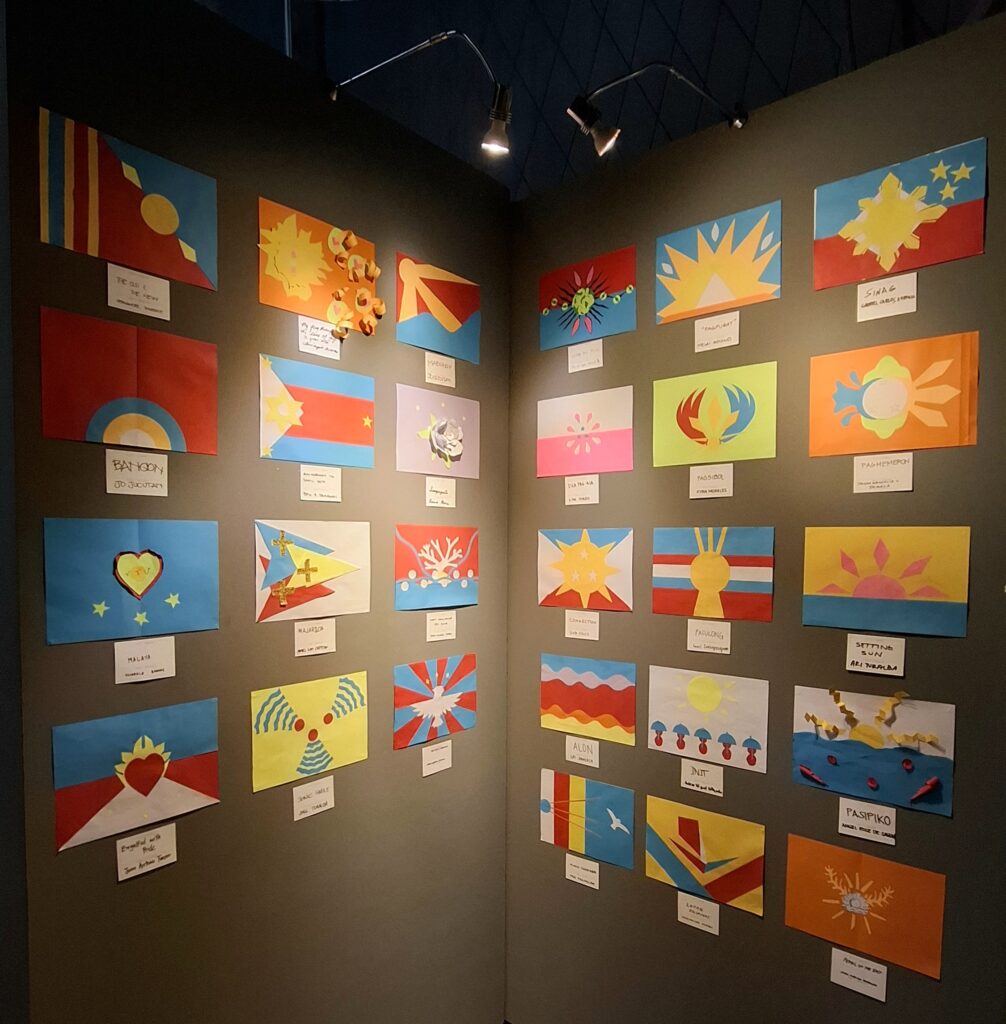
As participants added more and more contributions to the gallery walls, so too did the shift within the museum space become more pronounced. By having a primary role in the process of creating art, as well as being surrounded by others’ work and ongoing exhibitions, the participants’ relationship with the museum space transformed from that of a passive visitor to an active creator. It is in this collaborative process that the concept of subjective mapping is actualized.
Project Panatag will continue to hold subjective mapping workshops in Bacolod City and Zambales, before concluding at the Philippine Women’s University in Manila City. While the Subjective Atlas of the Philippines is slated to be released in 2026, the first batch of works created by student & faculty participants is on display now at the Feminist Cartography exhibit at Yuchengco Museum.
